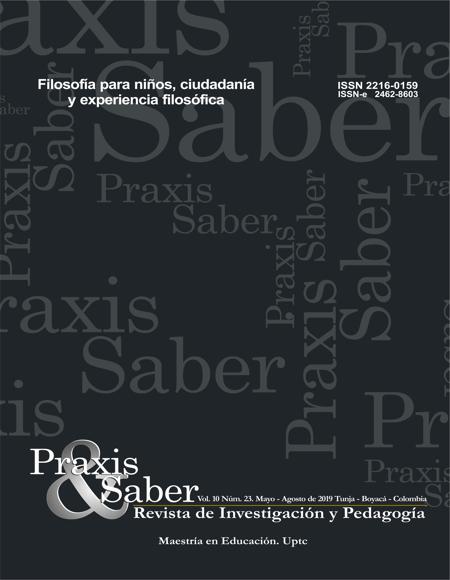Filosofía y ciudadanía: entre afirmación y formación

Resumen
La formación ética y ciudadana se constituye como uno de los pilares fundamentales de las escuelas modernas latinoamericanas. Desde los inicios del siglo XIX, intelectuales y políticos ven en la institución escolar el medio adecuado de formación social y política de sus habitantes. Algunos autores asumen, desde diversas perspectivas, la escuela como una especie de máquina de ciudadanía. Según nuestro punto de vista, más allá de los cambios políticos e institucionales ocurridos en los últimos doscientos años, esta idea continúa vigente. La escuela entendida como máquina de ciudadanía supone una especie de distancia entre el ciudadano formado y aquel que aún no lo está. Dicha distancia se sostiene en una concepción de la igualdad como objetivo. De acuerdo con esta forma de pensar la ciudadanía, los niños no son iguales a los ciudadanos formados. En el mejor de los casos, la ciudadanía que afirma la escuela es, al menos en sus inicios, incompleta, inacabada y debe ser formada. La pregunta que inspira nuestro trabajo es: ¿quiénes son aquellos que llamamos ciudadanos, aquellos a los que nuestros esfuerzos pedagógicos están dirigidos?
Palabras clave
ciudadanía, igualdad, escuela
Citas
Aquino de, T. (1947). Suma Teológica, (Edición bilingüe con el texto crítico de la Leonina), (Vol. 16) Madrid: BAC.
Cansanello, O. (2008). Ciudadano / Vecino. En N. Goldman (Ed.), Lenguaje y revolución: Conceptos políticos claves en el Río de la plata, 1780 -1850 (19-34). Buenos Aires: Prometeo.
Deleuze, G., & Foucault, M. (2006). Os intelectuais e o poder. En G. Deleuze, A ilha deserta e outros textos (pp. 265-273). São Paulo: Iluminuras.
Donghi, T. (2010). Tradición política española e ideología revolucionaria de Mayo. Buenos Aires: Prometeo
Durán, M. (2010). El concepto de ciudadano en el pensamiento de Simón Rodríguez: igualdad y universalidad. Estudios de filosofía práctica e historia de las ideas, 12(1), 9-21.
Guerra, F. (1999). El soberano y su reino. Reflexiones sobre la génesis del ciudadano en América Latina. En H. Sábato (Coord.), Ciudadanía política y formación de las naciones. Perspectivas históricas de América Latina ( 33-61). México: FCE, Colegio de México.
Jenofonte. (1999). Anábasis. Madrid: Cátedra.
Kohan, W. (2016). El maestro Inventor. Simón Rodríguez. Caracas: Ediciones del Solar.
Núñez, F. (2007). El concepto de vecino/ciudadano en Perú (1750-1850). Araucaria Revista
Iberoamericana de Filosofía, Política y Humanidades, 9(17), 235-253.
Quijada, M. (2008). Una constitución singular. La carta gadatina en perspectiva comparada. Revista de Indias, 68(242), 15-38.
Rodríguez, S. (1999a). Obras Completas, Tomo I. Caracas: Presidencia de la República.
Rodríguez, S. (1999b). Obras Completas, Tomo II. Caracas: Presidencia de la República.
